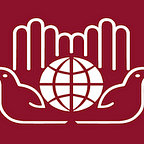Humanitarian Innovation Rooted in Local Context
May 5, 2017, New York City — From mobile cash transfers to drones, solar-powered water pump to prosthetic limbs, the democratization of technology has the possibility to revolutionize humanitarian response.
International organizations have recently forged the way for such innovative ventures by joining forces with tech companies from the private sector, piloting new and impressive solutions that can save lives during emergencies, and supporting visionary ideas for the future of humanitarianism. Many of these efforts, however, are unknown to the general public, and have rarely trickled down to local communities confronting humanitarian challenges.
Instead, what if local organizations and leaders on the ground — churches, schools, and community based organizations — were prepared to use, adapt, and design impactful technologies for disaster response? What if the humanitarian sector embraced risk, and possibly failure, as a modus operandi in order to develop the most refined and contextual solutions possible? What if private companies used humanitarian indicators to measure the impact of their engagement with local communities? Can we imagine a future where existing technologies are not just used, but actually introduced by local communities to save lives?
These questions are at the core of the Institute of International Humanitarian Affairs Innovation Hub (IIHA InnoHub), recently launched by IIHA Humanitarian Innovation Fellow and founder of High Tech Humanitarians,Giulio Coppi.
“(In development) it’s considered impossible to start a project without a community-based strategy behind it, while in the humanitarian sector it’s still considered normal by some actors to arrive, bring your solution, turn your back, and be gone leaving nothing behind you. We are trying to move away from this,” Giulio said in a recent Terms of Reference Podcast by Aidpreneur.
Open source potential. Giulio first realized the glaring gap in innovation for humanitarian action while working in Afghanistan and Cote D’Ivoire where he monitored the security situation for his teams using common tools like Twitter or by creating his own dynamic maps to track the movement of people and conflicts. Relying on these very basic information structures while knowing more effective options existed on the open source market was frustrating at best.
“There is a need for open source solutions to the current problems affecting humanity…This is important because in most patents or licenses are either too expensive or are not protecting technology. Local markets are either not interesting for logistic distributors…or the items are just out of reach for most organizations and communities in the field.”
The IIHA InnoHub and High Tech Humanitarians seek to fill this gap by congregating as many open source technological tools as possible, adapting them to humanitarian contexts, and sharing them with diverse humanitarian actors through an online “toolbox.”
To be included in the toolbox, the technologies must be open source, ethically in line with humanitarian principles, and adapted for humanitarian action. They could include software, 3D printing, prosthetic manufacturing, excavators, water pumps, drones, or even small satellites.
“Each tool you find in the toolbox has its own history, its own community, its own people who believed in this idea and brought it forward. Some of these communities are still supporting the tools so you can get in touch and ask them for support. Some of those aren’t so they’ll need you to engage with the tool and find people to modify, adapt, and evolve it.”
Local solutions is the future. The World Humanitarian Summit, Giulio said, was an indicator that the sector is moving toward more innovation-centered response, but there is a long way to go until innovation is embraced as priority in the sector and reaches local communities best placed to utilize them.
“There is a need for localizing innovation processes instead of centralizing them…to provide local organizations and local humanitarian actors…with the tools.”
The IIHA InnoHub hopes to help bridge this gap by involving crisis-affected communities in the development of technological tools that mitigate complex emergency situations.
“We don’t need a perfect product. We need to empower communities and humanitarians to be contributors, to be those who provide the solution.”
In addition to sponsoring research on this topic, the IIHA InnoHub will conduct trainings and workshops on innovation for humanitarian action.
The first IIHA InnoHub course in Data and Innovation Management in Humanitarian Action was offered from July 6 to 10 in New York City.
To learn more follow us on Twitter at @iiha_fordham
Angela Wells, IIHA Communications Officer
This article was originally published on the previous IIHA Blog.
